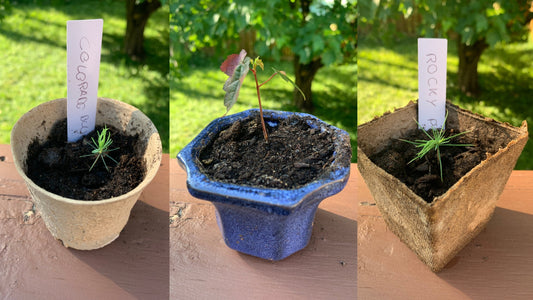Japan is not only a country of advanced technology and enchanting landscapes. It is also a true cradle of wisdom, where every daily gesture can be transformed into an enriching practice. Behind concepts such as Ikigai , Wabi-Sabi or Kaizen , lies an immense philosophy, rooted in respect for nature, acceptance of imperfection and the quest for inner balance.
What if we explored these cultural treasures together to reinvent our relationship with happiness?
Lesson #1: Find your Ikigai, your reason for being
What is Ikigai?
In Japanese culture, Ikigai is a central concept that refers to what gives meaning to life. Contrary to an often erroneous Western interpretation, Ikigai is not a cross between passion, mission, vocation and profession. Rather, it is about finding an activity or passion that brings you joy and satisfaction in your daily life, without necessarily including a financial dimension. As the podcast Ikigai Tribe points out, Ikigai is above all a personal and introspective quest.
How to discover your Ikigai?
To find your Ikigai, start by asking yourself these questions:
- What activities bring me joy, even if I’m not an expert?
- What makes me want to get up every morning?
- What little things in my day fill me with gratitude?
These thoughts will guide you towards activities or hobbies that enrich your daily life. To go further, explore our detailed guide on Ikigai in this blog article .
A concrete example: integrating a hobby into your routine
Imagine you start practicing the art of Japanese calligraphy. This hobby, although simple, could become your Ikigai by offering you a moment of calm, creativity and connection with yourself. It's not about being perfect, but about savoring the experience and progressing at your own pace. Are you short of ideas? Don't hesitate to contact us, we have plenty!
Why does it work?
According to experts, having an activity that brings meaning to your daily life can reduce stress and increase your overall satisfaction. As the Ikigai Tribe podcast explains, Ikigai is not a destination, but a journey. Every small step toward an activity that fulfills you contributes to your overall happiness.
Lesson #2: Embrace Wabi-Sabi, the beauty of imperfection
What is Wabi-Sabi?
Wabi-Sabi is a Japanese philosophy that celebrates the beauty of imperfection, ephemerality, and incompleteness. In contrast to our modern obsession with perfection, Wabi-Sabi invites us to appreciate things as they are, with their flaws and irregularities. As this article from Wabi-Sabi Journal explains, this approach values authenticity and simplicity, reconnecting us with nature and our humanity.
Kintsugi: A Powerful Metaphor
Kintsugi, the Japanese art of repairing broken objects with gold, is one of the most iconic expressions of Wabi-Sabi. Rather than hiding cracks, this technique highlights them, transforming a broken object into a unique and precious piece. This concept reminds us that our imperfections and trials can become our greatest strengths.

Applying Wabi-Sabi in your daily life
Here are some ideas for incorporating Wabi-Sabi into your daily life:
- Accept your imperfections: Rather than focusing on what's wrong, learn to appreciate your unique qualities.
- Repurpose used items: Repair or recycle your belongings instead of throwing them away, giving them a new life.
- Reconnect with nature: Incorporate natural elements into your home, such as plants or handmade objects.
The benefits of Wabi-Sabi on well-being
Embracing Wabi-Sabi can reduce stress and help you live more peacefully. By accepting that nothing is perfect, you release pressure and open yourself up to a more authentic and balanced life. As the Wabi-Sabi Journal points out, this philosophy encourages us to slow down and savor each moment, even in its simplicity.
Lesson #3: Adopt Kaizen, continuous improvement
What is Kaizen?
Kaizen , which literally means " change for the better " in Japanese, is a philosophy of continuous improvement. Popularized in the business world, this concept applies just as well to personal life. The idea is simple: instead of aiming for radical changes, focus on small daily improvements that, in the long run, produce significant results.
How to integrate Kaizen into your daily life?
Here are some tips for applying Kaizen to your everyday life:
- Break down your goals: Rather than setting ambitious and intimidating goals, identify small, concrete and achievable steps.
- Reflect every day: Take a few minutes each evening to evaluate what you have accomplished and what you can improve on the next day.
- Experiment without pressure: Try new habits or activities without aiming for perfection from the start.

A practical example: improving your routine with Kaizen
Let's say you want to take up a creative hobby, like painting or sculpting. Rather than dedicating hours to your new activity right away, start with 10 minutes a day. Gradually, you'll see your skills improve and your confidence grow, without feeling overwhelmed.
The benefits of Kaizen on well-being
Adopting Kaizen can reduce stress and increase your personal satisfaction. By focusing on small but steady progress, you avoid the frustration of unrealistic goals. According to a Harvard Business Review article, this method promotes better time management and greater resilience in the face of challenges.
Kaizen and happiness: a powerful alliance
By incorporating Kaizen into your daily life, you cultivate a positive and proactive approach to life. Each small victory becomes a source of motivation, reinforcing your sense of accomplishment and, by extension, your happiness.
Conclusion: Embrace Japanese Wisdom for a Happier Everyday Life
Japan teaches us that happiness is cultivated in the little things: finding one's Ikigai , appreciating imperfection with Wabi-Sabi , and progressing every day through Kaizen . These philosophies, although ancient, resonate perfectly with our modern lives, often punctuated by stress and endless to-do lists.
What if you took a first step towards a more balanced and inspiring daily life? Discover our Bonsai Box , a complete kit to introduce you to the art of bonsai. This meditative and rewarding hobby is perfect for integrating a little nature and serenity into your routine. Grow your own bonsai from seed and learn to cultivate patience and wonder, one small step at a time.
Order your Bonsai Box today and begin your journey to happiness rooted in the present moment.
🎲 Little thinking game: your happiness, Japanese style
To give you more inspiration, here is a simple exercise:
- Ikigai: Write down one thing you love to do that gives you energy.
- Wabi-Sabi: Identify an imperfection in your life that you can learn to accept or appreciate.
- Kaizen: Choose a small habit to adopt tomorrow to improve your well-being.
Share your answers in the comments or on your social networks by tagging @IkigaiBox1 . We can't wait to discover your inspirations! 🌱




